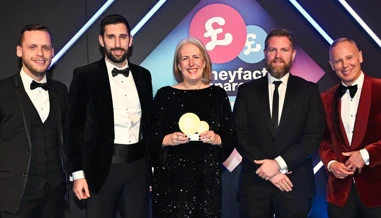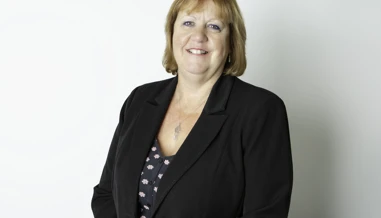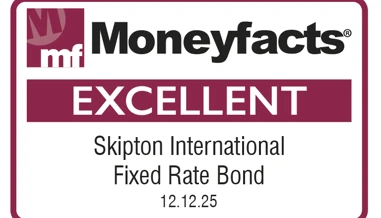The Power of Female Leadership: Breaking Barriers in 2025
In 2025, female leadership is no longer a rarity, but it is still far from the norm. While women are making significant strides across industries, particularly in financial services, the path to leadership remains uneven and, in many cases, unnecessarily difficult.

Jersey, like many jurisdictions, is navigating the complex terrain of equality, representation, and progress. But behind the data are real people, women who have broken barriers, challenged expectations, and reshaped the organisations they lead. Skipton International is a firm where more than half of our Executive Board are female.
The Reality Behind the Rise
Jennifer Mennim, Skipton International’s Chief Risk Officer, knows firsthand what it means to lead in a male dominated industry. “There’s no doubt the landscape is better today than it was a decade ago,” she says. “But that doesn’t mean the playing field is level. Women still have to navigate double standards: being assertive and ambitious without being labelled difficult.”
What helped her succeed? A combination of resilience, a supportive network, and the confidence to speak up. “I learned to be unapologetic about my ambitions. And I had great allies, men and women who championed talent, not gender, but it was a struggle. We have come a long way.”
That principle is echoed by Kaz Veljovic, Chief People Officer: “Strong leadership is diverse leadership. When women lead, organisations benefit from broader perspectives. Numerous studies show that companies with more women in leadership outperform their peers in innovation, employee engagement and profitability.”
But Kaz is clear: “This isn’t just about business metrics. It’s about fairness, representation, and building leadership teams that reflect the society we live in. Talent should never be gendered.”
The Power of Emotional Intelligence
Charlotte Dunsterville is Skipton’s Chief Commercial Officer. She emphasised the how of leadership just as much as the who: “Emotional intelligence is one of the most undervalued but critical qualities in a boardroom,” she says. “It brings empathy into decision-making, fosters collaboration, and helps leaders respond more effectively to both people and problems.”
She believes that more emotionally intelligent leadership often seen in female leaders has wide-reaching benefits. “When leaders listen, reflect, and adapt, organisations become more resilient. You build trust with your team, and that trust drives performance.”
Charlotte also highlighted the wider cultural dividends of inclusive policies like flexible working. “It shouldn’t be a perk; it should be a foundation. When both parents can balance work and family without fear of penalty, everyone benefits. Productivity goes up, retention improves, and wellbeing becomes a reality, not a buzzword. I want to give everyone regardless of gender an opportunity to benefit from flexible working.”
The Gender Pay Gap: A Mirror to Structural Inequality
Despite progress, significant structural barriers remain and nowhere is this more evident than in the gender pay gap.
In the UK, the average gender pay gap is 12.8%, but in financial services, it widens to 21% although this is a marked improvement from 35% when reporting began in 2017. The Channel Islands, however, present a more troubling picture: estimates suggest a gender pay gap ranging from 20% to 28%, with a staggering 65.7% gap among financial services professionals aged 55–59.
“This is the real impact of the ‘motherhood penalty’,” Kaz explains. “It reflects years of career breaks, slower promotions, and part-time work. And that’s not a failure of women, it’s a failure of the system.”
Charlotte adds: “Until we normalise shared parental leave and rethink how we structure career progression, the gap will persist. We need workplaces that evolve with people’s lives.”
Kaz is advocating for mandatory gender pay gap reporting in the Channel Islands something the UK has required since 2017 for companies with over 250 employees. “Without data, we can’t measure progress or hold anyone accountable. Transparency is the first step to change.”
Sticky Floors and Glass Ceilings
While much has been said about the “glass ceiling”, the invisible barrier preventing women from reaching the top, many women are stuck on what’s increasingly referred to as the “sticky floor”: the systemic barriers that keep them at the bottom.
“These issues start early,” Kaz says. “It’s about who’s encouraged to speak up, who’s offered stretch opportunities, and how performance is judged. Women often have to prove they’re already doing the job before they’re considered for promotion.”
In contrast, Jennifer notes, men are often promoted based on potential. “It’s subtle, but it adds up. And the higher you go, the lonelier it can get if you are the only woman in the room.”
Charlotte adds, “Typically men will look at a job description and if they think they can do half of the role they will apply, if women look at the job description and feel they can’t do most of the requirements they won’t. It’s perception and self-belief.”
Creating Possibilities
At Skipton, concrete actions have been taken to embed equity into the business. These include:
- Flexible and hybrid working models
- Enhanced parental leave policies
- A structured talent pipeline, with active development and mentorship for emerging female leaders
“We’re not interested in tokenism,” says Jennifer. “We want real pathways for women to progress. It is not fair to be a woman and progress and then draw the ladder up, we need other females to succeed and fulfill senior positions around us. That ladder needs to be firmly down.”
Kaz has been instrumental in implementing these new opportunities at Skipton, “These enhancements are for everyone. We celebrate International Women’s Day as a business, we call on our male leaders to speak up and be female allies. We need men to lead the conversations on removing the barriers and bringing gender equality even further in leadership.”
Charlotte agrees: “Leadership development should start early, and it should be intentional. That means identifying future leaders, giving them visibility, and supporting their growth. There can be an ingrained assumption that a future leader, for example our new CEO, would be a man. However, Susan Fouquier has been appointed and has now joined the team. There is no reason that the assumption of male leadership should be made.”
The Next Generation
“I’d have told my future self, don’t wait for permission to lead,” says Jennifer. “Own your space and speak with confidence even when you feel like an imposter.”
Kaz advises, “Build your network, surround yourself with people who challenge and champion you. Your career is shaped by the rooms you are in and who brings you into them.”
“Progress is not a competition,” Charlotte adds. “Mentor, support, and lift as you climb.”
All three shared one final takeaway: network, network, network!
Looking Forward
The message from these leaders is clear: the future of leadership must be diverse, emotionally intelligent, and equitable. The benefits to business, to people, and to society are undeniable. But achieving that future requires more than good intentions.
It calls for accountability, cultural change, and a willingness to challenge the status quo. As Jersey continues to build its global reputation in finance and beyond, it is time we match our ambition with action.
Because when women lead, everyone rises.




